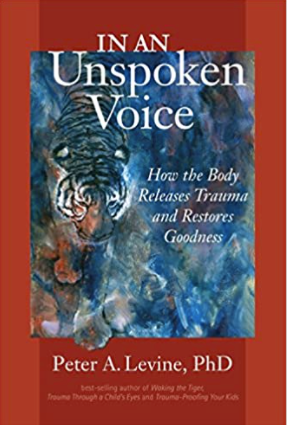Having Flashbacks or Nightmares?
Here’s What You Need To Know About Traumatic Memories
If you’ve ever experienced overwhelming stress, shock, abuse, loss, neglect, or violence, your nervous system probably went into protection mode to keep you safe. By shutting down sensations and blocking memories, it helped you survive.
But, if you didn’t fully process the trauma in a safe and supported way, those memories and traumatic energy can get stuck in your body until eventually, they resurface, bringing with them unsettling images, sensations, or emotions.
Memory recall can be intense and scary. It can leave you feeling like you’re back in the past, re-living the real thing again. But understanding the nature of traumatic memory can help you acknowledge the trauma so you can process and release it.
1. Traumatic Memories are different from normal memories
Think of your favourite memory. It’s probably pleasant, easy to recall, and makes for a good story because the details are precise and neatly ordered. That’s a normal memory.
Traumatic memories, on the other hand, are usually fragmented, vague, and puzzling. As a result, they can be confusing, distressing, and sometimes even numbing.
That’s because, when you first experienced the trauma, your body tried to protect you by putting any memories of the moment into deep freeze, so you didn’t have to deal with painful or complex emotions. But now the immediate danger has passed, those memories can begin to resurface. And they do so in pieces, at different times, and in various implicit ways, such as bodily sensations, movement, and unconscious behaviours.
Unlike normal memories, if you don’t safely process and release traumatic memories, they can lead to other problems, such as anxiety, depression, post-traumatic stress disorder (PTSD) or dissociative disorders.
2. Traumatic memories can re-emerge unexpectedly
You can’t plan the perfect time for a traumatic memory to resurface. They don’t play by the book.
They’re more likely to arise when you least expect them. Like when you’re at a birthday celebration, when you hear a particular song, or see a random object or photo.
And when they do come knocking, they can be persistent, unsettling, and sometimes re-traumatising. Especially if, after being fine for years, you suddenly start having nightmares, emotions, or physical sensations that remind you of a traumatic event from your past.
But here’s something you need to know, what you are remembering happened in the past, right now, in the present, you are safe.
3. Traumatic Memories can be a healing force
Traumatic memories have a way of resurfacing when it’s safe for you to know your experience. It’s like your soul’s way of calling you to resolve your trauma so you can heal and live a little deeper.
When you heed the call, your healing journey can continue. But it’s important to remember that, just like the ocean, healing comes in waves.
Recovering from trauma is not a straight path. Acknowledging it and shifting the energy within your body will look different each day. Some days will flow easier than others. Other days may feel like you’re swimming against the current. Either way, you need to feel it to heal it. It’s all part of the journey.
And with the proper support and coping strategies, you can overcome the fear, anger, sadness, or helplessness that may be holding you back. A trauma-informed therapist can help you do so safely with techniques such as EMDR, trauma-informed yoga therapy, psychotherapy, and counselling.
You can also ease the impact of traumatic memory on your body by bringing yourself to the present moment with some gentle self-care practices. Here’s where your work begins:
- Mindful breathing. Simply focussing on your breath as it touches the tip of your nostrils when you inhale and again as you exhale can help you return to your body.
- Journalling. Write it down. Or draw it out. Get your experience out of your body and onto paper. Track your healing as it happens.
- Tapping. The Tapping Solution is a great way to regulate your nervous system and reduce your stress and anxiety in less than 10 minutes.
At Mindful Synergi, we’re specialists in trauma-informed therapy. So if you’re starting to remember a traumatic moment in your past and need some support, we’re here to help.
If you’re in urgent need of support, please call Lifeline on 13 11 44 or Beyond Blue on 1300 224 636.
Want to better understand the effects of trauma on memory?
Blueknot Foundation has a helpful factsheet on memory. The Truth of Memory and the Memory of the Truth presents the latest research on memory, traumatic memory, and recovered memory to help you expand your understanding of memory.
Prefer to hear about the nature and transformation of trauma in the body?
Listen to Peter Levine’s In an Unspoken Voice as he blends biology, neuroscience, and body-oriented psychotherapy to show our innate capacity to self-regulate and heal from intense emotions and trauma.


